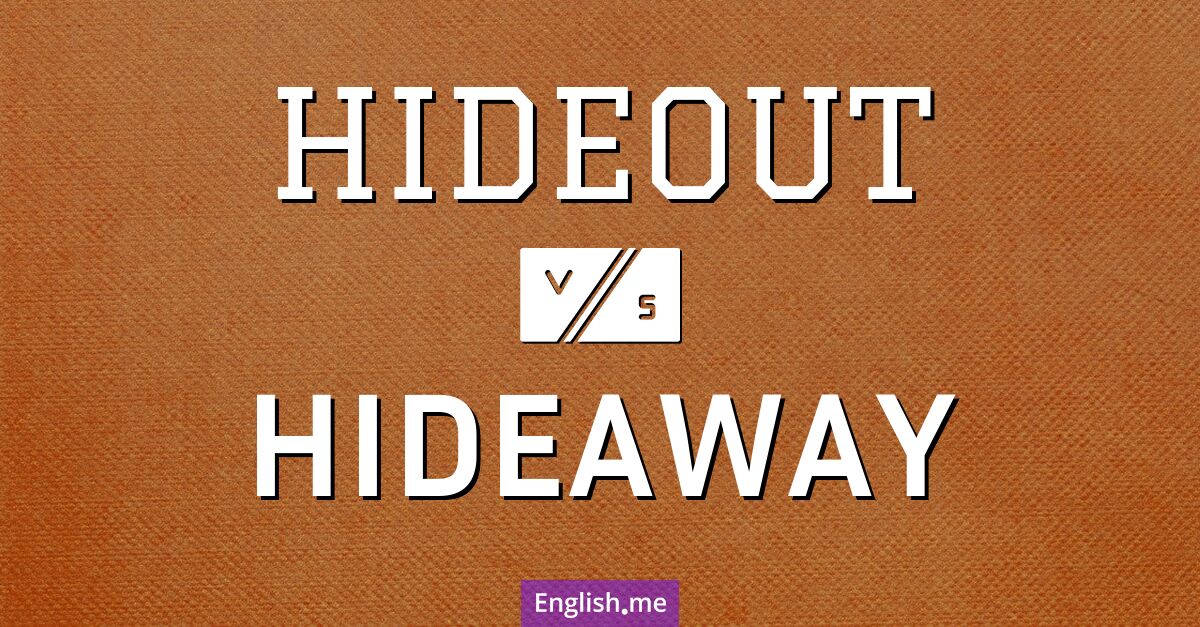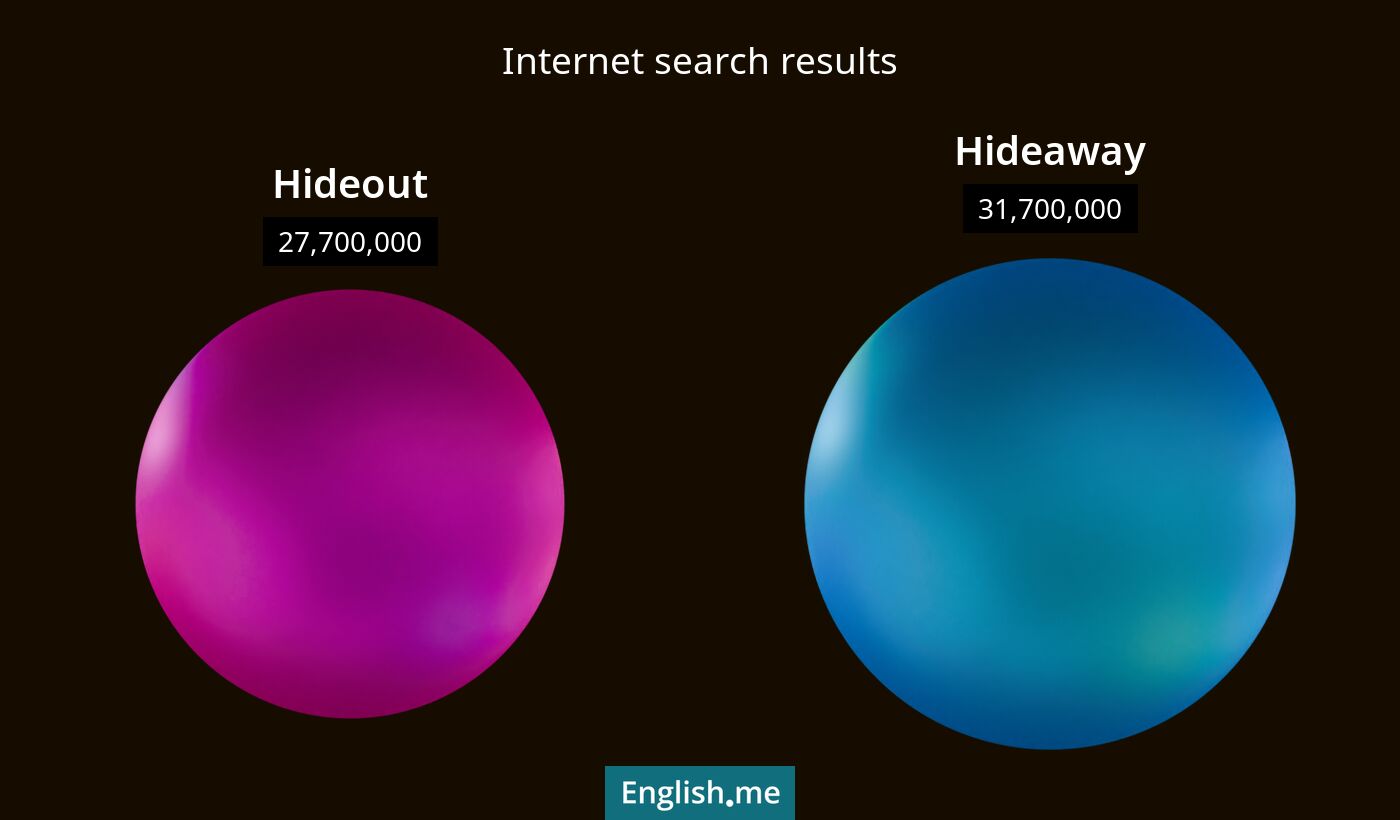"Hideout" vs. "hideaway": exploring secret retreats
Reviewed and edited by  Lloyd Cooper 19/11/2024, 23:10
Lloyd Cooper 19/11/2024, 23:10
English.me team member

 What is similar?
What is similar?
Both "hideout" and "hideaway" refer to a place where a person can go to be away from others or to escape from danger or discovery. They often imply secrecy and a certain degree of isolation.
 What is different?
What is different?
"Hideout" often implies a place used for hiding, especially from law or authority, and can have a negative connotation. "Hideaway" generally refers to a retreat or a place for relaxation and can have a more positive, cozy connotation.
 Which one is more common?
Which one is more common?

 Examples of usage
Examples of usage
Hideout- The fugitives were eventually found at their hideout in the mountains.
- The gang used an abandoned warehouse as their hideout.
- We spent the weekend at a charming hideaway in the countryside.
- The hotel serves as a perfect hideaway from the hustle and bustle of city life.

 English
English español
español française
française italiano
italiano deutsche
deutsche 日本語
日本語 polski
polski česky
česky svenska
svenska Türkçe
Türkçe Nederlands
Nederlands